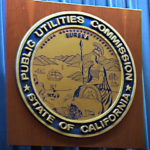Toyota and Ford are abandoning a collaboration that would have led a jointly developed hybrid drive train for SUV’s and trucks that do heavy lifting. Toyota released a statement saying
Toyota and Ford have completed their feasibility study for collaboration on the development of a new hybrid system for light trucks and SUVs, which was first announced in August of 2011. As a result, we have agreed to develop hybrid systems individually. Toyota and Ford continue to evaluate the feasibility of working together on next-generation standards for telematics and will consider other areas for future collaboration as well.
This refers back to an announcement the two companies made back then: Ford, Toyota to Collaborate on Developing New Hybrid System for Light Trucks, SUVs![]() which I wrote up here Ford and Toyota teaming up on hybrid drive train for light trucks and SUV’s
which I wrote up here Ford and Toyota teaming up on hybrid drive train for light trucks and SUV’s![]()
At the time they signed a Memorandum of Understanding with the goal of developing a “new
hybrid powertrain will bring the full hybrid experience of greater fuel efficiency to a new group of truck and SUV customers without compromising the capability they require in their vehicles.” Putting that through the interpolation filter, it means trucks and SUV’s that can haul boats and other heavy-duty chores, while having the fuel efficiency advantages coming from hybrid drive trains.
The press release does not say the two companies are abandoning work on this idea. Just that they’ll work on the idea separately, rather than in collaboration.
For themselves, Toyota went on to say: “Toyota’s commitment to hybrid technology is unwavering. We have sold over two million Toyota and Lexus hybrid vehicles in the U.S., representing 70 percent of the U.S. auto industry’s total hybrid sales, and over 5 million hybrids worldwide. In addition, Toyota remains on track to offer 18 new or redesigned hybrid models globally by the end of 2015. All told, Toyota estimates that its global fleet of nearly 20 hybrid vehicles (12 available in the United States) has resulted in approximately 34 million fewer tons of CO2 emissions than those emitted by gasoline-powered vehicles, and have saved their owners more than 3 billion gallons of gasoline.”
Toyota sure can prove they’ve got a strong commitment to hybrid drive trains. They’re not terribly well committed to plug-in vehicles, having been dragged kicking and screaming to make the Plug-in Prius after thousands of 3rd party PiP conversions had been done. But they certainly have a large list of hybrid vehicles in their product line-up.
What about Ford? Their focus seems to be on improved engine technology and lightweighting their vehicles. They do have electrified vehicles in their product line, but the effort is kind of late and the plug-in vehicles aren’t being pushed strongly. Ford does repeatedly say they’re gaining market share in the hybrid vehicle segment, and they’ve got a long range plan underway. Maybe their efforts at electrification will eventually become significant. We hope that’s true.
- Highway design could decrease death and injury risk, if “we” chose smarter designs - March 28, 2015
- GM really did trademark “range anxiety”, only later to abandon that mark - March 25, 2015
- US Government releases new regulations on hydraulic fracturing, that some call “toothless” - March 20, 2015
- Tesla Motors magic pill to solve range anxiety doesn’t quite instill range confidence - March 19, 2015
- Update on Galena IL oil train – 21 cars involved, which were the supposedly safer CP1232 design - March 7, 2015
- Another oil bomb train – why are they shipping crude oil by train? – Symptoms of fossil fuel addiction - March 6, 2015
- Chevron relinquishes fracking in Romania, as part of broader pull-out from Eastern European fracking operations - February 22, 2015
- Answer anti- electric car articles with truth and pride – truth outshines all distortions - February 19, 2015
- Apple taking big risk on developing a car? Please, Apple, don’t go there! - February 16, 2015
- Toyota, Nissan, Honda working on Japanese fuel cell infrastructure for Japanese government - February 12, 2015











